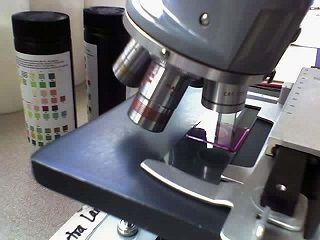Science Can Save Us, If We’re Wise Enough To Use It

I just got finished with a thoroughly engaging PBS program that I heartily recommend: “The Poisoner’s Handbook,” which chronicles the use of several toxins in the early 20th Century, and the life and times of a pathologist, Dr. Alexander Gettler, who came to prominence with his ability to solve crimes with chemistry. From the PBS website: “New York City’s first scientifically trained medical examiner, Charles Norris, and his chief toxicologist, Dr. Gettler, turned forensic chemistry into a formidable science and set the standards for the rest of the country.”
The relevance to our topic? The relationship of science to our society. When Gettler got started in 1918, no one took the idea of chemical science seriously when it came to solving crimes. But when he rose to the peak of his game in 1935, his testimony was unassailable. In a murder-by-poison case, when Gettler presented his evidence to a jury, supporting his conclusion that the defendant was guilty, the perpetrator was as good as dead.
This is just one example of what we’ve seen over the last several thousand years: our civilization’s steady advancement based on science, accompanied by public acceptance of its validity and importance. 2500 years ago, Aristotle taught his students to use experiments. 120 years ago, when U.S. President James Garfield received an assassin’s fairly superficial gunshot in the head, he would have soon recovered had his surgeon only washed his hands before operating on the victim’s skull; in the 1880s, no one understood that microbes, unobservable to the naked eye, could be the cause of disease, and Garfield died of an infection a few days later. But a few years later, the great discovery of germs and their role in disease was made, and modern medical science was born.
Sadly, our respect for science seems to have diminished badly in the last few years. Here’s what I wrote about the mounting assault on the subject that became a part of the extremely serious public debate surrounding our presidential election in 2012:
It is quite possible that this country may soon be led by a person who wields an utter contempt for science. Each of the Republican front-runners expresses this somewhat differently, but the dismissal of science as elitist, corrupt, or “just one way of looking at the world” is an important theme in the discourse of Michele Bachmann, Mitt Romney, Rick Perry, and of course, Sarah Palin.
Rick Perry dismisses evolution as “just a theory,” one that has “got some gaps in it.” Isn’t that a remarkable thing for a man to say who wishes to be taken seriously in the 21st Century? In the circle of biologists, the theory of evolution has the same status as Newton’s universal gravitation and Einstein’s relativity have among physicists.
On climate change, Governor Perry tells us: “I think there are a substantial number of scientists who have manipulated data so that they will have dollars rolling into their projects. And I think we are seeing almost weekly, or even daily, scientists are coming forward and questioning the original idea that man-made global warming is what is causing the climate to change.”
The idea that thousands of scientists are conspiring to perpetrate a hoax is preposterous, and the second part of Perry’s statement is patently false: the scientific consensus about man-made global warming includes 97 percent to 98 percent of researchers in the field, according to the National Academy of Sciences. Moreover, the evidence is becoming stronger, not weaker.
If we as a civilization truly are facing existential threats in terms of global financial crises and environmental catastrophe, I’m not sure that this a good time to disregard science and create important policies based on “gut instinct” or whatever drives these people’s thinking.
If there is hope for humankind, it will come through the application of science to develop remedies to our numerous problems. But in addition to the development of the cure, we’ll need to be wise enough to use it.
